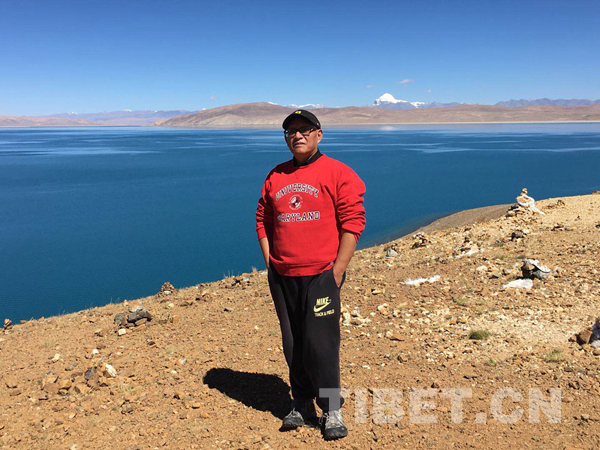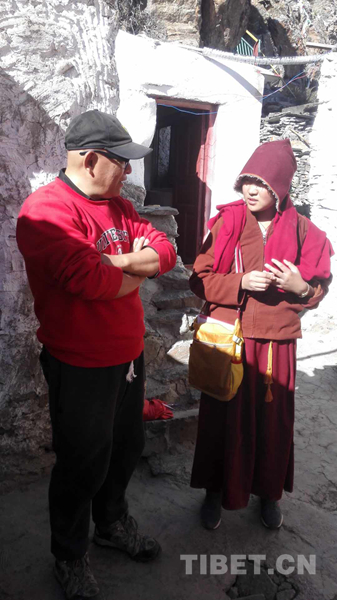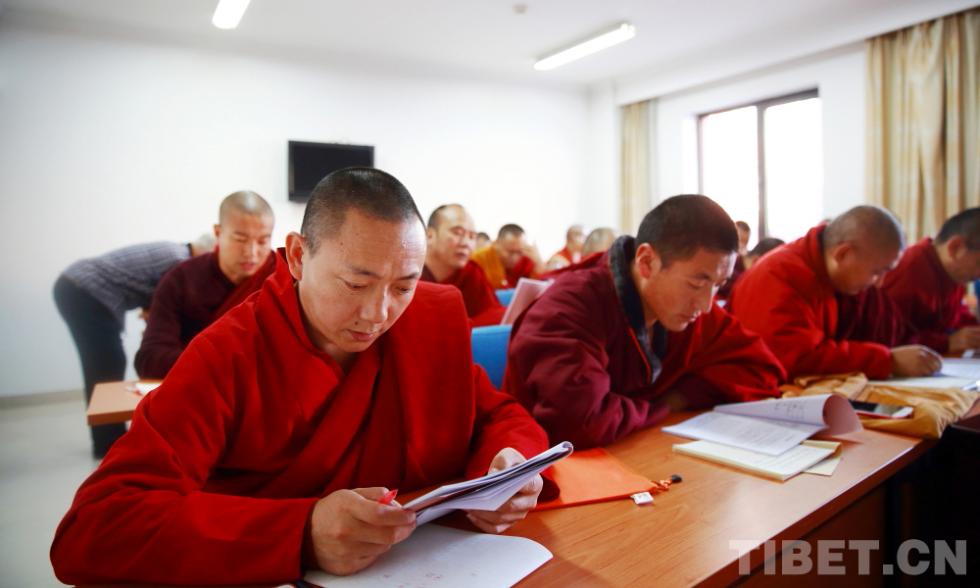Interpretations of Tibetan Buddhism should be adapted to social development: scholar

In September 2017, Zhou Wei, director of the Institute of Religion at the China Tibetology Research Center, conducted research in Ngari Prefecture.
A researcher in Tibetology recently said that the interpretations of Tibetan Buddhism must not only be confined to publications, but also should be spread to monasteries and Buddhist institutions so that religious followers can absorb the latest research findings.
Zhou Wei, director of the Institute of Religion at the China Tibetology Research Center made the above remark during an interview with China Tibet Online while talking about the successful practice of religious work in Tibet.

In September 2017, Zhou Wei, director of the Institute of Religion at the China Tibetology Research Center conducted research in Gyirong County, Shigatse Prefecture.
Zhou Wei cited his own findings from conducting research in Tibet. “In Tibet, some tulkus discuss parts of scripture that relate to social harmony and healthy civilization while giving lectures to the common people, which has brought great changes to the common’s lives. In the past, bicycles were often stolen in several suburbs outside of Shigatse. Later, it was discovered that thefts would not take place where certain tulkus were giving lectures. This is one of the effects of corresponding Buddhist teachings with social development. These tulkus have truly integrated the teachings of Tibetan Buddhism with local conditions. They have also taught many new concepts, which common people are especially eager to hear and willing to follow.”
“In fact, Tsongkhapa (1357-1419, founder of the Gelug sect of Tibetan Buddhism and Buddhist philosopher), while spreading Buddhism paid special attention to new ideas, such as putting the concept of the precepts and Tibetan social conditions of the era in conjunction with real issues. Therefore, interpretations of the doctrine should not be confined to publications. It is necessary to explore the contents of the scriptures that are compatible with social development and to guide representatives of the religious community, tulkus and high monks, so that they can lead religious people through their lectures.” Zhou added.
Zhou Wei believes that there is nothing wrong with pure Buddhist teachings, but it would be much better to combine religious doctrines with new ideas in order to solve the problems and confusions facing the public. By doing that, religious development can be more healthy and contribute more to social harmony.
Your Comment
Name E-mailRelated News
-
;
-
-

-
What to study in a high-level Tibetan Buddhism college?
The High-level Tibetan Buddhism College of China, which specializes in training high-level Tibetan Buddhist experts and is the highest institution of Tibetan Buddhist learning, was founded on September 1, 1987 at Xihuang Temple in Beijing.
-
-
-

-
Development of Tibetan Buddhism at best period in history: expert
"During the research we have visited many monasteries in Lhoka, Nagchu, Shigatse, and Chamdo. On the whole, we feel that the status of Tibetan Buddhism is at its best period in history," Zhou Wei said regarding the overall impression of religious development in Ti
-
Based in Lhasa, Tibet Vista is a Tibet travel agency that specialized in Tibet permit, and Tibet tours for both private and group travelers at a local price!
•4 Days Lhasa City Group Tour from USD 460 •8 Days Everest Base Camp Group Tour from USD 850 •15 Days Mt.Kailash Group Tour from USD 1780 •2016 Tibet Train Tours from Beijing, Shanghai, Chengdu, Xining,etc










